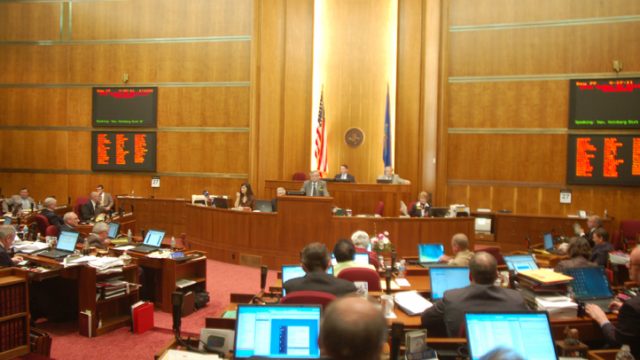Rod St. Aubyn: Political Games And The Legislature

I had a recent conversation with a lobbyist from another state expressing wonderment about ND’s legislative processes. He was shocked that separate bills are not introduced in each house by separate House and Senate members. That way if one bill is defeated in one house, it can still be introduced in another chamber with hopes of having better luck later on.
I explained that in ND all bills introduced in one chamber must be heard by a committee and must be voted on by that chamber. Committee chairs cannot decide which bills will get a hearing. Committees only make recommendations and cannot “kill” a bill. All bills introduced in one house must have hearings on all introduced bills and be acted on by the “crossover” date (half-time so to speak). Bills that survive that chamber’s vote are then messaged over to the other house where the process is repeated in the second half of the legislative session.
I have seen in earlier legislatures where legislators would introduce similar bills in each house just to get all legislators on record for voting for or against some partisan issue, such as a minimum wage bill or some other controversial issue at the time. I don’t think that those strategies ultimately had much effect on future election outcomes, so we really don’t see it happening much anymore.
[mks_pullquote align=”right” width=”300″ size=”24″ bg_color=”#000000″ txt_color=”#ffffff”]The legislative session is limited to 80 legislative days, so if these types of political games became more prevalent changes would be necessary. [/mks_pullquote]
The legislative session is limited to 80 legislative days, so if these types of political games became more prevalent changes would be necessary. It possibly could result in limiting the number of bills each legislator could introduce. Currently up to a certain date, each legislator can introduce an unlimited number of bills. After that designated date, the legislator is limited to 3 or 5 bills (Senate and House) until the final bill submission deadline.
The difference between ND and many other states is that ND truly has a “citizen legislature.” Many other states have full-time legislators. In ND most legislators have a profession outside of the legislature and take leave of absence during the 4 month period during the Legislative Session every other year.
One pitfall with “citizen legislators” is that there is a chance that some legislators become self-serving and steer legislation impacting that legislator’s profession. However, when this occurs it is quickly noticed by other legislators and that legislator becomes targeted as being self-serving and ultimately becomes less effective and less supported by his or her peers.
Legislators do appreciate the knowledge and experience that that legislator may have in the subject matter if it is not abused and does not appear to be self-serving.
Every session that I have seen in the past 24 years, there usually is a push for annual legislative session. I personally fear that annual sessions will inevitably lead to full time professional legislators.
In states that have such systems they spend much more money for their legislatures and I question that their results are better than in ND. If the total legislative session days are still limited to 80 days during a two year period (say 60 days for the first session and 20 days for the 2nd year), I fear that not enough time will be allowed to carefully scrutinize the budgets.
When I served on the appropriations committee both in the House and in the Senate and was responsible for reviewing the Human Services budget, I never felt like we had adequate time to really dig into the budgets. Recently when explaining the Human Services budget, the carrier of the bill stated that the budget is now over $3.5 billion. How in the world can legislators do an adequate job in even fewer days each session?
So I am not a proponent of annual sessions. I have to admit that annual sessions do have some advantages, but overall I think the negatives still outweigh the positives.
Overall, our legislative process is pretty good. It can always be improved and the bodies do make some changes to legislative rules to correct problems from past sessions. Even with some political games and some self-serving legislators, it still seems to work just fine. From what I have observed from other states, I would not trade ND’s legislative process with any other state.
Though not perfect, we are well-served by the ND Legislature in my opinion.




